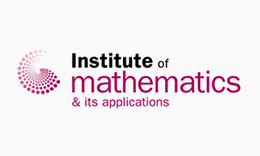Mathematical and Theoretical Physics Code F341 Attend an Open Day Attend an Open Day Clearing places available – 0800 121 40 80
Apply NowKey Facts
F341-
UCAS Tariff
144 - 128
-
Course duration
4 years
Available for September start 2025
Further details on entry requirements
Apply NowMathematical and Theoretical Physics (F340) at Aberystwyth University will develop your understanding of the more theoretical parts of Physics, replacing an experimental approach to Physics with a solid grounding in Mathematics.
This combination of Mathematics and Physics links to many spheres of interest, and students studying this diverse subject are very much in demand with employers.
A highlight of your fourth year is undertaking extended projects under the direction of a supervisor in an area of current research.
Course Overview
Modules September start - 2025
Please note: The modules listed below are those currently intended for delivery during the next academic year and may be subject to change. They are included here to give an indication of how the course is structured.
| Module Name | Module Code | Credit Value |
|---|---|---|
| Algebra * | MA10510 | 10 |
| Calculus * | MP10610 | 10 |
| Coordinate and Vector Geometry | MA10110 | 10 |
| Differential Equations | MA11210 | 10 |
| Dynamics, Waves and Heat * | PH10020 | 20 |
| Further Algebra and Calculus * | MP11010 | 10 |
| Mathematical Analysis * | MA11110 | 10 |
| Modern Physics | PH14310 | 10 |
| Probability | MA10310 | 10 |
| Statistics | MA11310 | 10 |
Options
| Module Name | Module Code | Credit Value |
|---|---|---|
| Energy and the Environment | PH19010 | 10 |
| Laboratory Techniques for Experimental Physics (10 Credits) * | PH15510 | 10 |
| Physics Career Planning and Skills Development * | PH12910 | 10 |
| Module Name | Module Code | Credit Value |
|---|---|---|
| Complex Analysis * | MA21510 | 10 |
| Distributions and Estimation | MA26010 | 10 |
| Electricity and Magnetism * | PH22510 | 10 |
| Introduction to Abstract Algebra | MA20310 | 10 |
| Linear Algebra * | MA21410 | 10 |
| Mathematical Physics * | PM26020 | 20 |
| Principles of Quantum Mechanics | PH23010 | 10 |
| Real Analysis | MA20110 | 10 |
| Thermodynamics | PH21510 | 10 |
Options
| Module Name | Module Code | Credit Value |
|---|---|---|
| Advanced Dynamics | MA25710 | 10 |
| Hydrodynamics 1 | MA25610 | 10 |
| Module Name | Module Code | Credit Value |
|---|---|---|
| Group Theory | MA30110 | 10 |
| Norms and Differential Equations | MA30210 | 10 |
| Partial Differential Equations | MA34110 | 10 |
| Particles, Quanta and Fields | PH33020 | 20 |
| Probability and Stochastic Processes | MA37410 | 10 |
| Module Name | Module Code | Credit Value |
|---|---|---|
| Major Project * | MAM9840 | 40 |
| Minor Project * | MAM9720 | 20 |
* Also available partially or entirely through the medium of Welsh
Careers
Teaching & Learning
Student Testimonials
Typical Entry Requirements
UCAS Tariff 144 - 128
A Levels AAA-BBB with A in Mathematics and B in Physics.
GCSE requirements (minimum grade C/4):
English or Welsh and Mathematics
BTEC National Diploma:
DDD-DDM with specified subject and A in A level Mathematics and B in Physics
International Baccalaureate:
34-32 points overall with 5 points in Physics and 6 points in Mathematics at Higher Level
European Baccalaureate:
80% overall with 7 in Mathematics and Physics
English Language Requirements:
See our Undergraduate English Language Requirements for this course. Pre-sessional English Programmes are also available for students who do not meet our English Language Requirements.
Country Specific Entry Requirements:
International students whose qualification is not listed on this page, can check our Country Specific Entry Requirements for further information.
The University welcomes undergraduate applications from students studying the Access to Higher Education Diploma or T-level qualifications, provided that relevant subject content and learning outcomes are met. We are not able to accept Access to Higher Education Diplomas or T-levels as a general qualification for every undergraduate degree course.
Our inclusive admissions policy values breadth as well as depth of study. Applicants are selected on their own individual merits and offers can vary. If you would like to check the eligibility of your qualifications before submitting an application, please contact the Undergraduate Admissions Office for advice and guidance.

